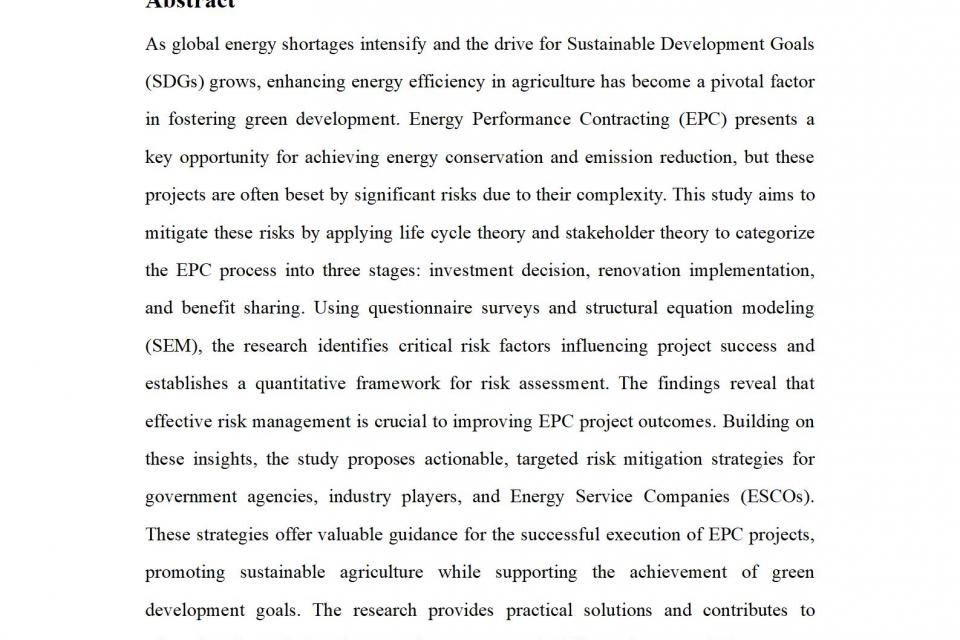Datasets
Standard Dataset
Questionnaire Data on Energy Contracting in Agricultural Projects
- Citation Author(s):
- Submitted by:
- Zhuochen Sun
- Last updated:
- Sat, 04/26/2025 - 17:10
- DOI:
- 10.21227/494e-wk13
- License:
Abstract
As global energy shortages intensify and the drive for Sustainable Development Goals (SDGs) grows, enhancing energy efficiency in agriculture has become a pivotal factor in fostering green development. Energy Performance Contracting (EPC) presents a key opportunity for achieving energy conservation and emission reduction, but these projects are often beset by significant risks due to their complexity. This study aims to mitigate these risks by applying life cycle theory and stakeholder theory to categorize the EPC process into three stages: investment decision, renovation implementation, and benefit sharing. Using questionnaire surveys and structural equation modeling (SEM), the research identifies critical risk factors influencing project success and establishes a quantitative framework for risk assessment. The findings reveal that effective risk management is crucial to improving EPC project outcomes. Building on these insights, the study proposes actionable, targeted risk mitigation strategies for government agencies, industry players, and Energy Service Companies (ESCOs). These strategies offer valuable guidance for the successful execution of EPC projects, promoting sustainable agriculture while supporting the achievement of green development goals. The research provides practical solutions and contributes to advancing the agricultural sector’s long-term sustainability and energy efficiency.
Keywords: Contract energy management; Energy Performance Contracting; Agricultural energy conservation; Risk management; Life Cycle Theory; Stakeholder Theory
Title: Questionnaire Data on Energy Contracting in Agricultural Projects
Description: The dataset contains responses to a questionnaire designed to assess the risk factors and the effectiveness of energy performance contracting in agricultural settings. It includes both quantitative and categorical data from agricultural professionals involved in energy efficiency initiatives.
The data includes:
Survey questions and corresponding answers.
Risk factors and responses related to EPC implementation in agriculture.
Demographic information of survey participants (anonymized).
Instructions for Use:
The dataset can be used to replicate the analysis performed in this study, particularly the structural equation modeling (SEM) used to identify critical risk factors for EPC projects.
The data is provided under the following conditions:
The dataset is anonymized to ensure privacy and confidentiality of participants.
The data may be used for non-commercial research and educational purposes only.

 1 Views
1 Views




